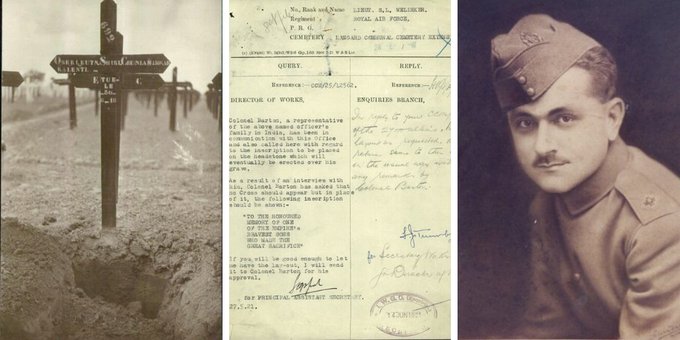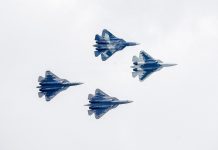Lieutenant Shri Krishna Chanda Welinkar might not sound a very familiar name in India at present but the story of the fighter pilot is taking the country by storm. So who is Lieutenant Shri Krishna Chanda Welinkar?
Meet The Veterans Who Survived Spanish Flu, World War, Great Depression & Now Covid-19 Pandemic
UK’s Commonwealth War Graves Commission (CWGC) has released a set of never-before-published files as part of its new digitization project, out of which has emerged a remarkable story of Lieutenant Shri Krishna Chanda Welinkar.
The Lieutenant was one of the very few Indian Fighter Pilots during the First World War and was one of the 1.3 million Indians who fought for the British Empire.

Lieutenant Shri Krishna Chanda Welinkar
During World War-I, Lieutenant Shri Krishna Chanda Welinkar, who hailed from Bombay, was one of the 1.3 million Indians who had answered the call to fight for the British Empire. Nearly 74,000 perished and never saw their homeland again and are remembered today in cemeteries and memorials throughout the world, including in France, Belgium, West Asia and Africa.
Despite the enormous size of the Indian military contribution, only a few took to the skies in the service of the Royal Flying Corps (RFC) and later the Royal Air Force.
Among these early Indian military aviators was Lieutenant Shri Krishna Chanda Welinkar. He was 23 years old when he was badly wounded in a dogfight near Peronne on 27 June 1918 and died three days later in a German field hospital on 30 June 1918.
Andrew Fetherston, the chief archivist for CWGC, said: “For everyone who died in the First World War there was inevitably a partner, parent or child back home who had questions. The heartbreaking letters in CWGC’s archive give us an insight into what it was like for those families trying to come to terms with their loss.”
He further added: “They are stories that show desperate searches for closure, former enemies uniting and, on many occasions, the sad realization that a missing loved one would always remain so.
We are pleased to be able to make this invaluable piece of World War history accessible to a new generation and help deepen our understanding of how the First World War impacted those who were left behind.”
Lieutenant Shri Krishna Chanda Welinkar – The Past
Lieutenant Shri Krishna Chanda Welinkar was born on October 23 1894 in Bombay, Colonial India and was a well-educated man proficient in many languages including Persian, Arabic and Hindustani.
In 1916, Welinkar studied History and Law at Jesus College, Cambridge, where his name appears today on a memorial commemorating all members of the college who fell during the war, as per cwgc.org.
Welinkar initially joined a flying school in Hendon, Middlesex, where he learned to pilot a biplane and received his Royal Aero Club certificate in August 1916 as he wanted to join the Royal Flying Corps, later known as the Royal Air Force.
However, when he sought to enlist, Welinkar faced the same prejudices as other Indians who wanted to be pilots and was encouraged instead to become an air mechanic. He subsequently enlisted in the Oxfordshire and Buckinghamshire Light Infantry in February 1917, but he was eventually commissioned in the Royal Flying Corps as an officer.
Welinkar patrolled the skies above the Western Front and on June 27 1918, at 0945 hours, he took off from the Bertangles aerodrome for what proved to be his final patrol.
He was last seen engaged in a dogfight with a two-seater near Peronne after which but he did not return and was reported missing. His fate remained unknown for many months afterwards and his family had to wait nearly three years before they finally knew for sure that he had died.
The newly released e-files chronicle the remarkable discovery of Lieutenant Shri Krishna Chanda Welinkar’s final resting place long after WWI had ended.
Colonel Barton, who knew Welinkar, acted on behalf of his mother and helped find her missing son. They spoke to former enemies and honed their search to the grave of an unidentified man, buried by the Germans as “Oberleutnant S.C. Wumkar” in Rouvroy, Belgium.
A watch and a pair of field boots typically worn by RAF officers were recovered which Barton was able to determine belonged to an Indian flying officer, but he could not identify it was Welinkar for certain.
The body was later moved and reinterred in the Hangard Communal Cemetery Extension but it wasn’t until the vital clue, found in the original German burial records at Rouvroy in February 1921, that the identity of the grave was confirmed beyond doubt as that of martyred – Lieutenant Shri Krishna Chanda Welinkar.
In May 1921, Colonel Barton, on behalf of Welinkar’s mother, requested that a commission headstone be placed on the grave with the following personal inscription: “To the Honoured Memory of One of the Empire’s Bravest Sons.”
The records — known as the Enquiry Files — are part of a collection of nearly 3,000 files that have never been made available to the public before. Nearly half have been digitised so far, alongside a previously unreleased collection of more than 16,000 photographs held in negatives in the commission’s archive.
The CWGC commemorates the 1.7 million Commonwealth servicemen and women who died during the two World Wars. But it is possible to release only surviving records from the First World War. Correspondence with families of Second World War casualties often involves people still alive today and cannot be made public for many years because of the UK’s data protection rules.




